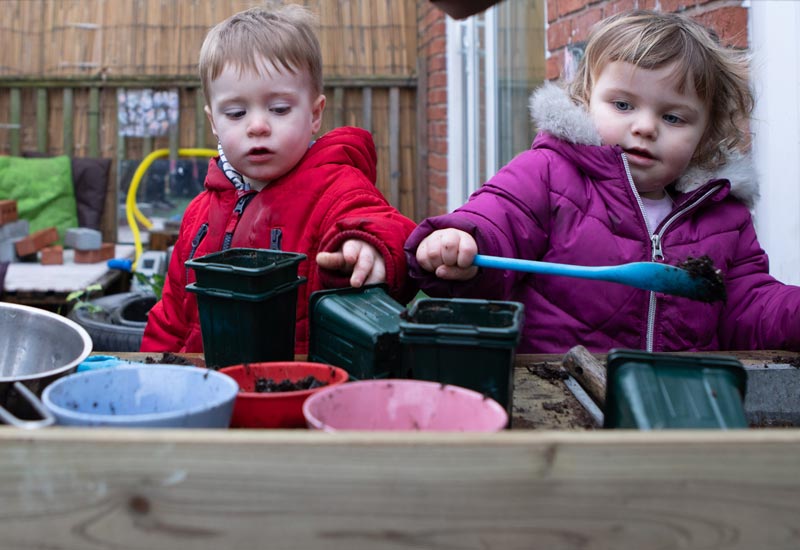Nursery news and interesting information
At Little Acorns nursery we want all families to be informed as much as possible…

Nursery news and interesting information
At Little Acorns nursery we want all families to be informed as much as possible…

Our Little Acorns Nursery Blog
Latest News
 Enrol on a ‘Complete Antenatal Course’ — Absolutely Free!16th February 2026 - 11:19 am
Enrol on a ‘Complete Antenatal Course’ — Absolutely Free!16th February 2026 - 11:19 am Our Clayton-le-Woods Forest School is Open!15th January 2026 - 2:11 pm
Our Clayton-le-Woods Forest School is Open!15th January 2026 - 2:11 pm 15 Fascinating Facts About Babies16th December 2025 - 4:07 pm
15 Fascinating Facts About Babies16th December 2025 - 4:07 pm
Little Acorns Nursery
Little Acorns is an excellent nursery in Clayton-le-Woods, Chorley, Lancashire (PR6), near Clayton Green & Clayton Brook. It provides high quality childcare for babies (3 months +) & children of pre-school age.
Contact Us
34 Sheep Hill Lane,
Clayton-le-Woods,
Chorley,
Lancashire
PR6 7JH
Opening Hours
Open 7:30 am – 6 pm Mon-Fri




Let’s Find Minibeasts! A Simple Nature Activity for Kids (With Free Poster)
Minibeasts
Minibeasts are fascinating little creatures that come in many shapes and sizes. Each is a unique little character and many are simply enchanting. Take bumble bees, for example, with their adorable furry bodies, stripes and antennae, little ladybirds with their cute spots, or stick caterpillars that look just like twigs! There are so many different types, so we’ve put together a free identification poster showing 30 of our favourite minibeasts that are likely to be lurking nearby if families take the time to look. The poster is free to download and share. Print it out in colour at full size (A3) or reduce it to A4 for children to take outdoors. There are little tick boxes too, so children can mark which minibeasts they’ve seen as time goes by.
Wildlife-Friendly Flower Growing Fun for Under-Fives
This time, it’s all about growing wildflowers that help to feed pollinators and encourage them to come to gardens, balconies, patios, plant pots, and window boxes where children live. As well as butterflies, the pollinators include bees, hoverflies, dragonflies, damselflies, and some non-flying insects like beetles. What’s more, you may well find that wildflowers attract birds and sometimes even bats too!
Pollinators are not only beautiful and adorable, but they’re essential for a healthy environment and to pollinate food crops. So, all in all, this is another hugely worthwhile activity for under-fives and older children to get involved in. It’s also great fun and educational. So, without further delay, here is our simple guide explaining how children and families can start growing wildlife-friendly flowers to support and attract these magical little creatures. Enjoy!
The Big Butterfly Count: a Nature-Themed Activity for Families
Bird Spotting Activity for Kids – with Free Poster
To help you get started, we’ve created a free PDF poster featuring 40 British birds that children can try to spot and identify. Whether little ones are in the garden, park, or countryside, there are plenty of opportunities to see these beautiful birds in their natural habitat. Children can even try to spot birds when they’re simply looking out the window — this is quite an accessible activity.
So why not download the poster, print it out, and head outside with your children? Instructions are given underneath the preview image available in the full post below. Who knows, your little one(s) might just discover a new passion for birdwatching and nature!
Significant Childcare Funding Announced for Families
A Guide to the Game-Changing Childcare Funding Initiatives Announced in the Chancellor’s Spring Budget 2023
Generous and far-reaching childcare funding reforms were announced in the Spring Budget 2023 last month. The Chancellor of the Exchequer’s new funding plans should give more parents, including those of even younger children, access to significant help with childcare costs going forwards. The new initiatives will:
So, the new childcare funding should make a huge difference for those families that are eligible. Let’s take a look at the 3 key childcare funding initiatives announced…
News Round-Up for Little Acorns Nursery
Follow for Nursery News, Insights & Early Years Information
Following is an overview of where you can find — and follow — Little Acorns Nursery and what you can expect to see if you do …
Help for Children with Special Educational Needs & Disabilities (SEND)
Childcare Help for Children with Special Educational Needs & Disabilities
Early years and childcare providers can support children under five in a variety of ways if they have special educational or developmental needs, and/or a disability. Indeed, helping affected children as early as possible in their lives is of paramount importance…
Childcare Funding Options (a Quick Guide)
Microgreens: A Fun Food Growing Activity for Under-Fives
First: What Are Microgreens?
Microgreens, also known as micro leaves, are …